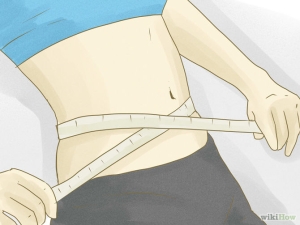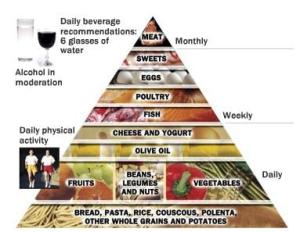Many factors can impact the success or failure of a new diet or exercise program, so we often spend a lot of time researching and choosing the best weight loss program, finding the most effective workout routine, or eating the right foods. But there is also mental attitude that can affect whether or not you lose weight. One of these factors is self-efficacy, and it’s easy to change.
What is Self-Efficacy?
Self-efficacy is your belief that you can successfully carry out a specific task. Simply said, You have to believe you can do it. If you start your weight loss journal with the words, “I can lose weight!”, your self-efficacy with regard to weight loss is probably high. You noticed I said weight loss journal, I know most of us don’t keep a journal, but today it’s easy. The traditional way would be to buy a book with blank pages and write every day about the goal you have. Today, you can start a journal on your computer or tablet by using any text writer that comes with your computer. 5 minutes a day and you can jot down the things you ate, and if you working out, even if it’s walking put down what exercise you did. O.K., you might ask yourself why go thru the bother? Well, first it shows that this time you are serious about losing weight and you're going to keep a record of your progress. Remember, if you haven’t done this before, start your journal with a statement of your goal. And if you ever get discouraged just read the journal from the beginning. It’s a reminder of why you decided to lose weight. Also, a journal can help you when you hit a stopping point and you can’t lose any more. Read the journal and you can see what you are doing differently and why you stopped losing.
Self-efficacy generally relates to a specific goal. For example, you may have strong beliefs that you are capable of skipping a high-calorie late-night snack. That means your self-efficacy regarding late-night snacking is high, but you might have doubts about whether you’re going to get up early the next morning to work out. Your self-efficacy regarding the morning workout is low.
Self-Efficacy vs. Self-Confidence.
It might seem as if self-efficacy is just another version of self-confidence, but that’s not true. Let’s use an example: say Carol is a graphic designer who has worked her way up the corporate ladder to become the head of her department. She’s proud of her accomplishments, comfortable in social settings, strong but respectful in dealing with her boss and positive about her personal relationships. Carol has a strong sense of self-confidence.
But let’s say that Carol is overweight. She’s tried dieting repeatedly, has worked with personal trainers to stick to an exercise program, and has even gone to weight-loss camps to shed her excess pounds. Nothing has worked. Carol now believes that she just can’t lose weight. So even though Carol is self-confident, her self-efficacy about her ability to lose weight is low.
Why Does Self-Efficacy Matter?
Researchers have found a strong link between one’s beliefs in her ability to successfully perform a task, and her completion of that task. Quite a bit of research has been done with regard to self-efficacy and weight loss — most confirming a relationship between strong beliefs (either negative or positive) and actual success.
To see why it matters, let’s go back to our example of Carol. Let’s say that Carol’s new diet coach has identified a weak link in Carol’s diet: she’s good for most of the day, but she tends to eat too many of the cookies and cakes that are left in the lunchroom at work. Let’s say that Carol has never been able to pass up those treats in the past, so her belief that she can do it now is minimal. When she’s faced with a tray of brownies, she’s not likely to muster the willpower to walk away, because she knows that she always fails anyway. Her attitude is, “why bother to make the effort?”, and she eats a brownie. Carol’s beliefs about her abilities have become a self-fulfilling prophecy.
But let’s say that her diet coach was able to build her self-efficacy. The coach was able to remind Carol of the many other situations where she has successfully passed up treats in order to stick to her diet. He tells her that he believes she can do it. Now, when Carol is equipped with the belief that she can, in fact, walk away successfully, she’s more likely to do so when she’s faced with the tray of brownies.
How Do I Build Self-Efficacy?
So how do you turn a negative belief system into positive thoughts? Researchers have identified four things that impact self-efficacy: mastery of experiences, social modeling, social persuasion, and emotional responses.
4 Ways to Improve Self-Efficacy to Lose Weight
- Set and reach small goals. To improve your mastery of experiences, you want to successfully complete small goals that will act as stepping stones to larger accomplishments. Break each long-term goal into smaller achievable goals, and as you complete each one, acknowledge it in your journal and remind yourself of your success. The completion of each small task will build your level of self-efficacy for completing larger tasks in the future.
- Surround yourself with positive messages. If the people that surround you are successfully completing the goal that you want to achieve, you’re more likely to believe that you can do it, too. Find friends that have some habits you admire. Skip the lunchroom snacks and spend your break with a crowd that eats a healthy meal. Instead of going to happy hour with your buddies, find a few friends that want to hit the gym and exercise. You can also surround yourself with positive messages electronically. Sign up for newsletters that provide healthy messages, fill your Facebook feed with posts from weight loss coaches and successful dieters, and follow health-oriented Twitter feeds.
- Social Persuasion. Let friends and family know that their encouragement and positive messages make a difference. Then, make it a habit to acknowledge the compliments when you get them. Often friends and family have a similar problem, then maybe you can’t talk about it, this is another area where social media can help. Several recent studies have found that positive messages sent electronically can help people lose weight. Get connected with other dieters who have lost weight. Your friends and family will come around to your way of thinking after they see the progress you made. Then watch the compliments come in.
- Learn to Relax. Emotions can trigger overeating. If or when you become stressed, that can trigger a food binge.
If the concept of self-efficacy is new to you, don’t worry. Simply your awareness of your positive and negative beliefs may help you change the things you need to adjust in order to lose weight. Remember to start small, make changes gradually, acknowledge your successes, and move forward from there. Permanent weight loss doesn't come quick. Permanent weight loss is about losing body fat. Quick weight won't reduce your amount of body fat and will not be permanent.
Look for my podcast by searching “How Bad Do You Want To Lose Weight” on the podcast app that you use. You’ll see a piece of my book cover.
If you really want to lose your body fat look for my e-books at the websites listed below. You’ll get information on Healthy eating, exercise, and diet. Instead of spending hours on the internet reading dozens of posts, you can save time by picking up one of my e-books.
There are two e-books. “How Bad Do You Want To Lose Weight?” is available at all the online bookstores selling for $3.99. Go to any of the websites below and search the title to find my e-book. This book gives you all you need to lose weight without spending money on gym memberships, diet plans, or meal plans.
Look for my book. at Amazon.com, bn.com, iBooks, Kobo.com, Scribd.com, or Gardner Books in the U.K.
My new e-book is available on Smashwords.com and other online bookstores. Just type “getting to a Healthy Weight” in the search box at the top of the home page.










